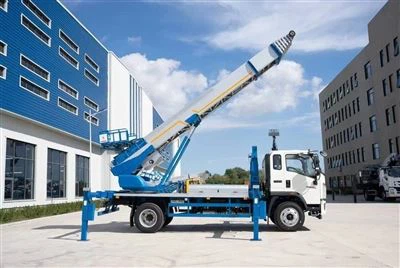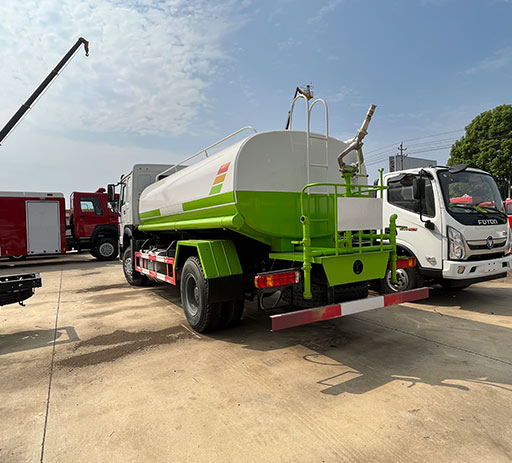Everything You Need to Know About Small Mixer Trucks

Small mixer trucks are essential vehicles in the construction and concrete industry. They play a vital role in transporting and mixing concrete for various projects, from residential buildings to large infrastructure. This article will explore the types, features, benefits, and best practices of small mixer trucks.
What is a Small Mixer Truck?
A small mixer truck is a specialized vehicle designed to mix and transport concrete in a liquid state to construction sites. These trucks typically have a smaller size and capacity compared to traditional mixer trucks, making them ideal for small to medium-sized projects.
Key Features of Small Mixer Trucks
- Size: Usually smaller than conventional mixer trucks, allowing for easier maneuvering in tight spaces.
- Capacity: Typically ranges from 2 to 6 cubic yards, offering flexibility for various job sizes.
- Mixing Drum: Equipped with a rotating drum to keep the concrete mixed and ready for pouring.
- Chassis: Built on a lighter chassis which enhances fuel efficiency.
Types of Small Mixer Trucks
Conventional Mixer Trucks
These trucks are equipped with a front-loading or rear-loading drum mixer. They are versatile and widely used in construction for various applications.
Mobile Mixer Trucks
Also known as volumetric mixers, mobile mixer trucks mix the ingredients on-site. This offers greater control over the concrete’s mix and eliminates waste from surplus concrete.
Self-Loading Mixer Trucks
These trucks can load, mix, and discharge concrete entirely on their own. They are highly efficient for remote job sites where accessibility is limited.
Advantages of Using Small Mixer Trucks
Enhanced Maneuverability
Small mixer trucks can easily access narrow streets and tight job sites, making them perfect for urban construction projects.
Cost-Effectiveness
Due to their smaller size, small mixer trucks often have lower operational costs, which can save money for construction companies.
Flexibility in Project Sizes
Small mixer trucks accommodate different project sizes, allowing contractors to scale their operations as needed.
Reduced Waste
With on-site mixing options, mobile mixer trucks reduce concrete waste, ensuring resources are used efficiently.
Choosing the Right Small Mixer Truck
Assessing Your Project Needs
Before selecting a small mixer truck, analyze your project requirements such as concrete volume, site accessibility, and type of concrete needed.
Evaluating Truck Specifications
Examine factors such as engine power, mixer capacity, and overall weight to determine the best fit for your projects.
Comparative Table of Small Mixer Trucks

| Truck Type | Capacity (Cubic Yards) | Best Use Case |
|---|---|---|
| Conventional Mixer | 3-6 | Small to medium construction jobs |
| Mobile Mixer | 2-4 | Job sites with variable demands |
| Self-Loading Mixer | 1.5-3 | Remote locations with limited access |
Operational Tips for Small Mixer Trucks
Regular Maintenance
To ensure longevity and optimal performance, maintain a regular maintenance schedule including checking the mixer drum, engine, and hydraulic systems.
Training for Operators
Providing proper training for truck operators ensures safety and efficiency when handling small mixer trucks.
Effective Route Planning
Plan routes to minimize travel time and avoid congested areas, which will improve efficiency and reduce costs associated with fuel and labor.
Common Challenges and Solutions
Limiting Space at Job Sites
Solution: Use smaller models that can easily navigate confined spaces.
Concrete Hardening during Transport

Solution: Check the drum speed and maintain proper mixing during transport to prevent the concrete from hardening.
Fuel Efficiency Concerns
Solution: Optimize routing and schedule regular maintenance checks to improve fuel efficiency and vehicle performance.
Small Mixer Truck Brands to Consider
Popular Manufacturers
- Freightliner: Known for reliable and durable mixer trucks.
- Peterbilt: Offers customizable options suited for different operational needs.
- Kenworth: Provides highly efficient small mixer trucks with advanced features.
Pros and Cons of Each Brand
| Brand | Pros | Cons |
|---|---|---|
| Freightliner | Durability, strong reputation | Higher price point |
| Peterbilt | Customization options, strong resale value | Fuel efficiency could be better |
| Kenworth | Advanced technology features | Complex maintenance requirements |
Conclusion and Future Trends
As technology advances, look out for more eco-friendly options such as electric small mixer trucks and automatic mixing systems. The future of small mixer trucks holds great potential for more efficient and sustainable construction processes.
Frequently Asked Questions (FAQs)
1. How much concrete can a small mixer truck carry?
A small mixer truck typically carries between 2 to 6 cubic yards of concrete, depending on the model.
2. What is the difference between a conventional mixer truck and a mobile mixer truck?
Conventional mixer trucks transport pre-mixed concrete, while mobile mixer trucks mix concrete on-site according to project requirements.
3. Can small mixer trucks be used for large projects?
While they can be used for larger projects, their efficiency is best utilized in small to medium-sized jobs.
4. What maintenance is required for small mixer trucks?
Regular maintenance includes checks on the mixer drum, engine, hydraulic systems, and tire conditions to ensure optimal performance.
5. Are mobile mixer trucks more cost-effective?

Mobile mixer trucks can be more cost-effective as they reduce waste and allow for on-demand mixing, minimizing excess concrete.
6. What safety measures should operators take when using small mixer trucks?
Operators should be trained on safety protocols, conduct pre-trip inspections, and adhere to local regulations regarding concrete transport and pouring.
